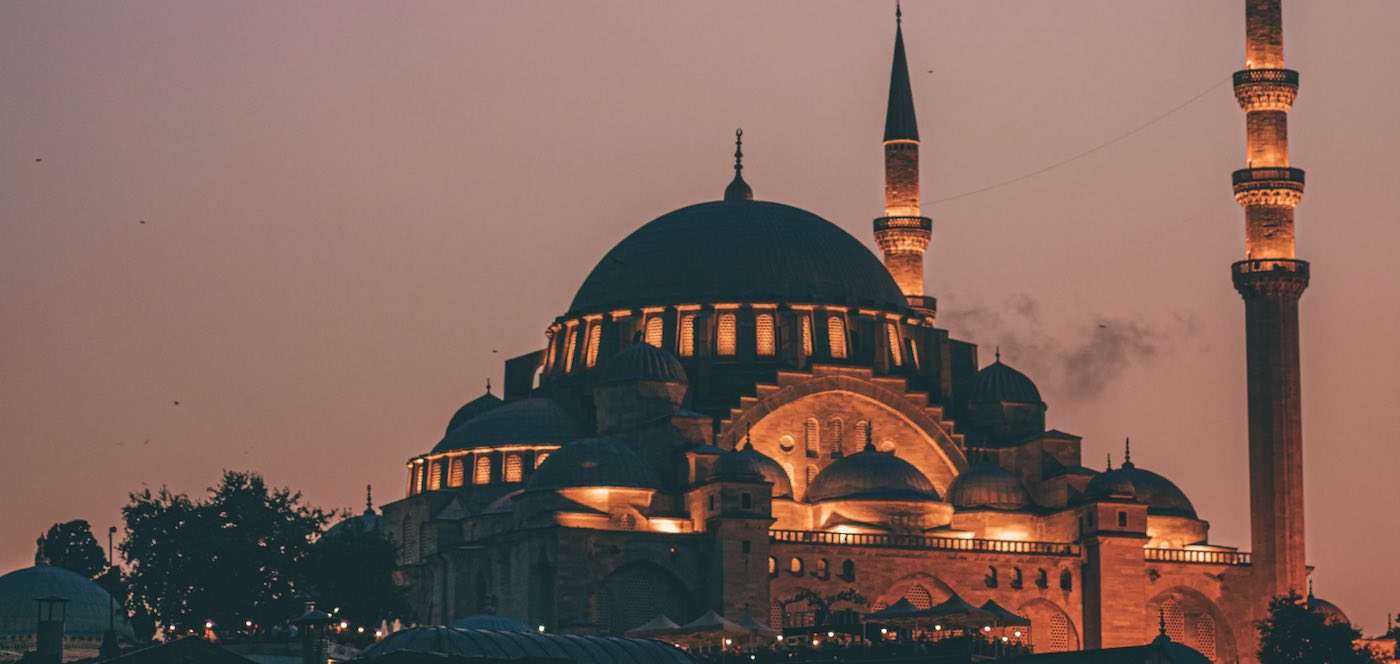#TBT: Muslims Flooded Streets to Condemn Terrorism, 70,000 Clerics Issued Fatwa Against ISIS
Here's how some Muslims around the world have protested ISIS and terror groups in the last year, including 70,000 clerics declaring a fatwa against them.

The British Foreign and Commonwealth Office Minister is often surprised when he hears people talking as if Britain's encounter with Islam and the Muslim world is something new, stretching back a mere few years. The truth is that Muslims have been an integral part of Britain and of our way of life, at home and abroad, for centuries. Read Lord Triesman's essay below:
The British Museum in London contains an 8th century gold coin minted by King Offa of Mercia with Arabic text on both sides. No one really knows why Offa would have inscribed a coin with Arabic text, but it does represent one of the earliest known connections between Britain and the Islamic world.
Contacts continued between an advanced and civilized Islamic civilization and a backward and impoverished West throughout the Middle Ages, with Europe and Britain being the main benefactors, inheriting a rich scientific and philosophic tradition, universities, advances in medicine, mathematics and countless other benefits, which triggered the Renaissance and allowed Europe to slowly emerge from the Dark Ages.
Over the last two centuries, Muslims have settled in the UK in increasing numbers, to the point where there are an estimated two million Muslims in the UK today. The first purpose-built mosque opened in Woking in 1889 and in 1940 the government donated £100,000 towards the building of the first mosque in London –now the Regents Park Mosque — in recognition of the bravery and courage of Muslim soldiers who fought and died for Britain in World War I. Today there are over 1,200 mosques across the UK and Islam is by far the second religion in the UK in terms of following.
TODAY, BRITAIN'S MUSLIMS ARE CENTRAL to our political, business and social life. There is an increasing number of Muslims in the armed forces, in the police and in parliament. For example, there are four Muslim MPs, five Muslim members of the House of Lords, one Muslim MEP (Member of European Parliament) and over 200 Muslim councillors. They are there, in positions of great influence, because of their skills, their talent and their commitment to creating a better and fairer society for everyone.
British Muslims, of course, enjoy the benefits of education, healthcare, democracy, freedom of religious expression, gender equality, tolerance and opportunity like everyone else in the UK. The government's policy is to help people of non-British origin to integrate into our society, while encouraging them to maintain their cultural identities if they so wish. Britain is a better, more interesting and richer place because of this diversity and to talk of "British culture" these days is meaningless without referring to the broad melting pot of cultural and ethnic influences of which our society consists.
That is why it is so tragic that there are people who want to exploit our differences in order to create religious and ethnic hatred. The fact that the London bombings last year did not lead to a widespread pattern of reprisals and counter-reprisals is a testament to the solidarity and mutual respect within our society. However, this doesn't mean that there aren't occasional difficulties in inter-community relations; it is all too easy for misunderstanding and antipathy to develop. We must continue to work tirelessly to minimise such unnecessary tensions and ensure that the tiny minority of racists and extremists does not get a foothold.
There are still difficulties faced by Muslims in the UK. For example, they are statistically more likely to live in the poorer areas throughout the country. However, the government is expanding its efforts across government departments to improve opportunity and tackle inequality in every community. In fact, there has been a jump in university registration by Muslims in recent years, which is a strongly positive indicator of better future prospects.
THE WORLD IS BECOMING A SMALLER PLACE and people of different cultures and religions are having to learn to live together as never before. Of course, this will result in tension from time to time, but this also presents tremendous opportunities. We have a lot to learn from each other and this exchange of new ideas creates the dynamism which pushes us forward intellectually, scientifically and culturally.
Historically, when we look at classical Islamic civilization, this presents a model of how people of a diverse mixture of races and creeds can live together and learn from each other to create a cultural whole much greater than the sum of its parts. Although relationships between the various communities were by no means always harmonious or straightforward, this does provide an early example of a multicultural society, different from but not alien to the one which we aspire to establishing today. This diversity resulted in a creative and eclectic mixture of ideas which gave rise to literary masterpieces and scientific achievements which were far ahead of their time.
Obviously, historians will argue about the exact reasons for the flourishing of this civilization, but it is clear that the inspiration of Islam —a religion which, my Muslim colleagues always stress to me, teaches tolerance and peaceful coexistence— had a major role in creating this progressive model for society.
Lord Triesman is the British Foreign and Commonwealth Office Minister.
Be the first to comment